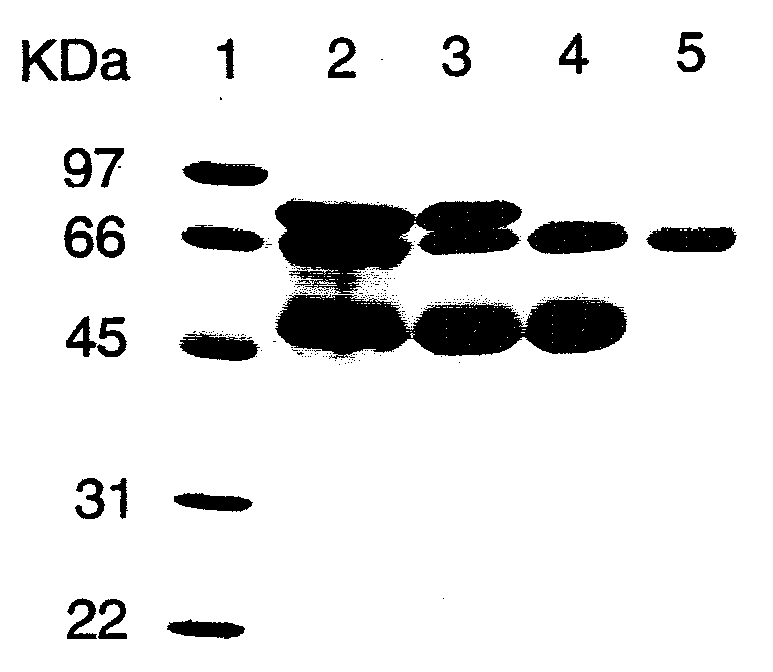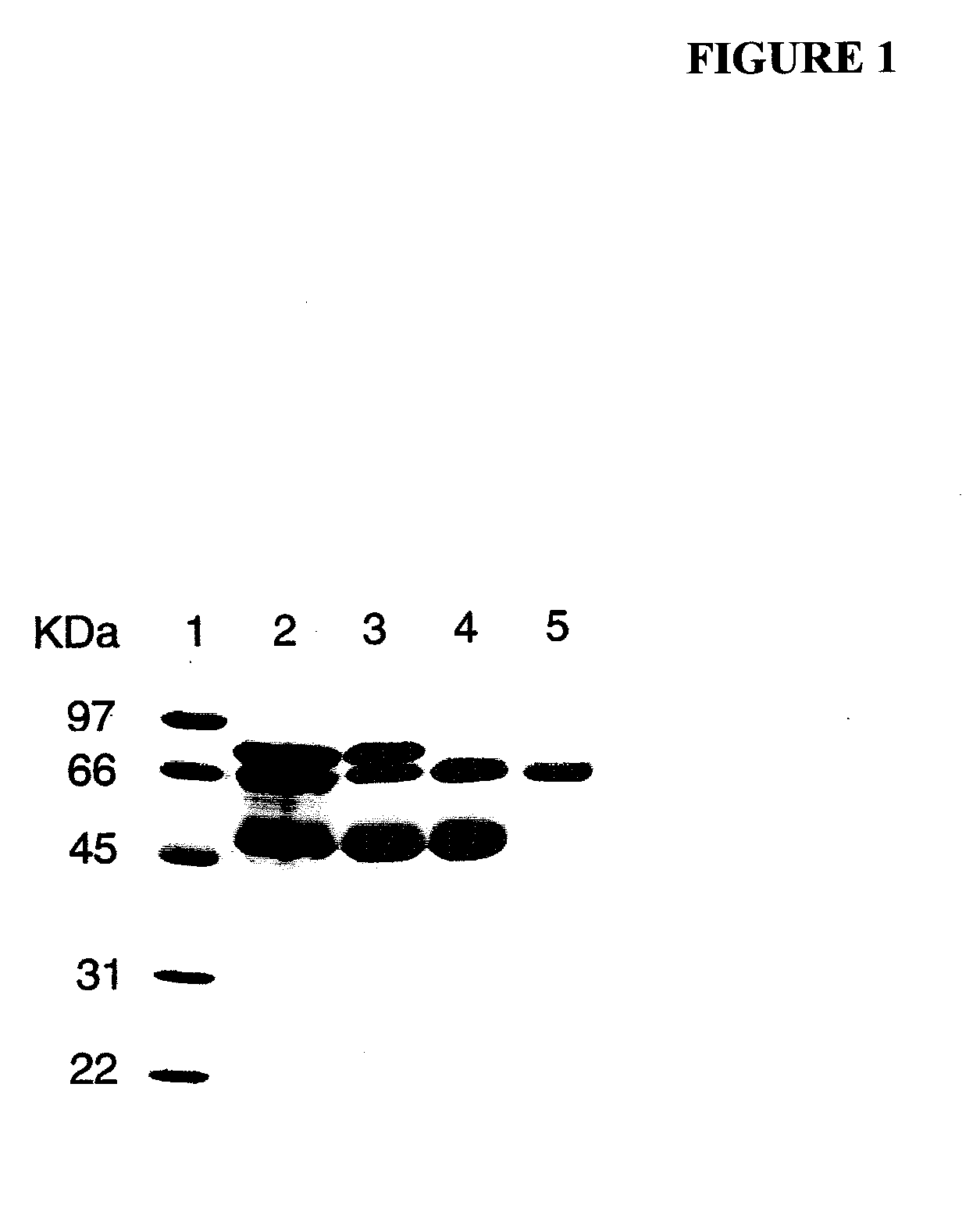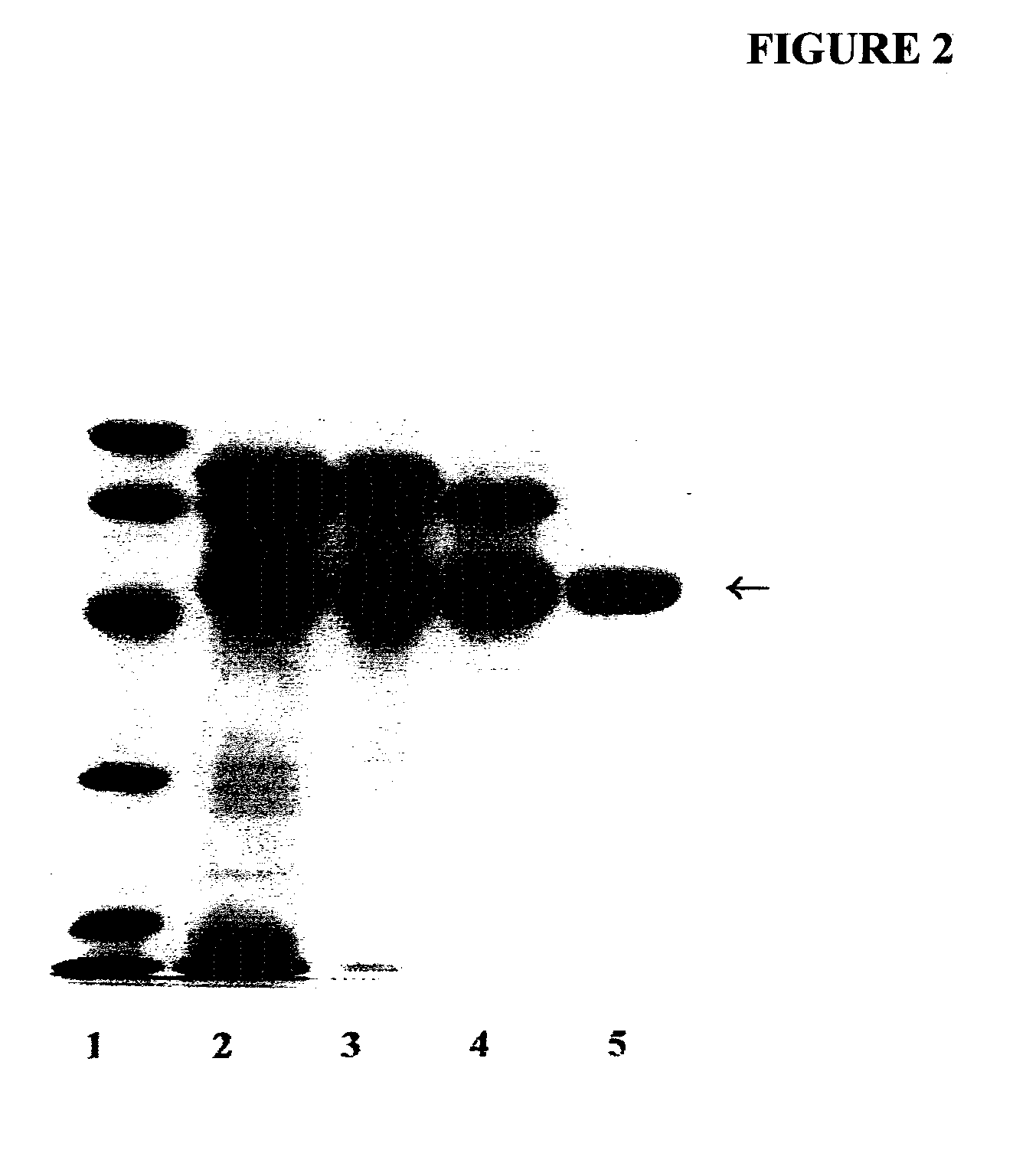Compositions to reduce or prevent skin cancer
a technology of compositions and skin cancer, applied in the field of compositions to reduce or prevent skin cancer, can solve the problems of malignant melanoma death due to skin cancer, limited success of immune cell therapy, vaccine therapy, etc., and achieve the effect of reducing the occurrence and growth of skin cancer
- Summary
- Abstract
- Description
- Claims
- Application Information
AI Technical Summary
Benefits of technology
Problems solved by technology
Method used
Image
Examples
example 1
Purification and Spectrophotometric Assay of PALP
[0102]Human PALP (Type XXIV, 1020 units of total activity) in a partially purified form was obtained commercially from Sigma-Aldrich. According to information received from the technical service of Sigma-Aldrich, their marketed PALP product (used here) was prepared by the method of Ghosh and Fishman [Ghosh, N. K. and Fishman, W. H. (1968), “Purification and properties of molecular-weight variants of human placental alkaline phosphatase,” Biochem. J. 108, 779-792]. Briefly, the purification steps described in that paper involve homogenization of human placenta in Tris, extraction with butanol, exposure to heat (55° C.), three successive precipitations of protein with ammonium sulfate followed by re-suspension, fractionation with ethanol twice, and Sephadex-G-200-gel filtration optionally followed by continuous curtain electrophoresis to further separate PALP variants.
[0103]As determined by sodium dodecyl sulfate-polyacrylamide gel elec...
example 2
Purification of AT
[0110]A partially purified human placental alkaline phosphatase preparation was acquired from Sigma-Aldrich, Inc. AT is a major component of the commercially obtained PALP. AT was first further purified by successive Concanavalin A-Sepharose and Q-Sepharose chromatography as described by Chang et al. for the isolation of PALP [Chang, T.-C., Huang, S.-M., Huang, T.-M. and Chang, G.-G. (1992), “Human placenta alkaline phosphatase: An improved purification procedure and kinetic studies,” Eur. J. Biochem. 209, 241-247]. The Q-Sepharose fraction, which still contained placental alkaline phosphatase in addition to AT, was further purified to homogeneity by t-butyl HIC chromatography [She, Q.-B., Mukherjee, J. J., Crilly, K. S. and Kiss, Z. (2000), “α1-Antitrypsin can increase insulin-induced mitogenesis in various fibroblast and epithelial cell lines,” FEBS Lett. 473, 33-36]. The 5 ml bed volume t-butyl HIC cartridge was connected to a PHARMACIA FPLC system and the fract...
example 3
Development and Treatment of Tumor Models
[0112]The B16 mouse melanoma tumors were developed in first generation hybrid BDF1 (C57 B1 female×DBA / 2 male) adult female mice kept at specified pathogen free (SPF) hygienic level. These mice have the complete immune system. The human H-168 melanoma tumors were developed in the homozygous line of C.B.-171 cr scid / scid mice (with severely compromised immune deficiency) which is an inbred mutant strain. In each case, tumor tissue fragments of about 0.1-cm3 were surgically implanted subcutaneously into the intrascapular region to develop the tumors. Each tumor fragment contained 1-1.5×106 cells. The animals were kept in macrolon cages on ventilated rack at 22-24° C. (50-60% humidity) with lighting regimen of 12 / 12 h light / dark. The animals had free access to tap water and were fed with sterilized standard diet (Charles River VRF1, Germany) ad libitum. The animals were taken care of according to the “Guiding Principle for the care and use of Ani...
PUM
| Property | Measurement | Unit |
|---|---|---|
| molecular weight | aaaaa | aaaaa |
| molecular weight | aaaaa | aaaaa |
| molecular weight | aaaaa | aaaaa |
Abstract
Description
Claims
Application Information
 Login to View More
Login to View More - R&D
- Intellectual Property
- Life Sciences
- Materials
- Tech Scout
- Unparalleled Data Quality
- Higher Quality Content
- 60% Fewer Hallucinations
Browse by: Latest US Patents, China's latest patents, Technical Efficacy Thesaurus, Application Domain, Technology Topic, Popular Technical Reports.
© 2025 PatSnap. All rights reserved.Legal|Privacy policy|Modern Slavery Act Transparency Statement|Sitemap|About US| Contact US: help@patsnap.com



